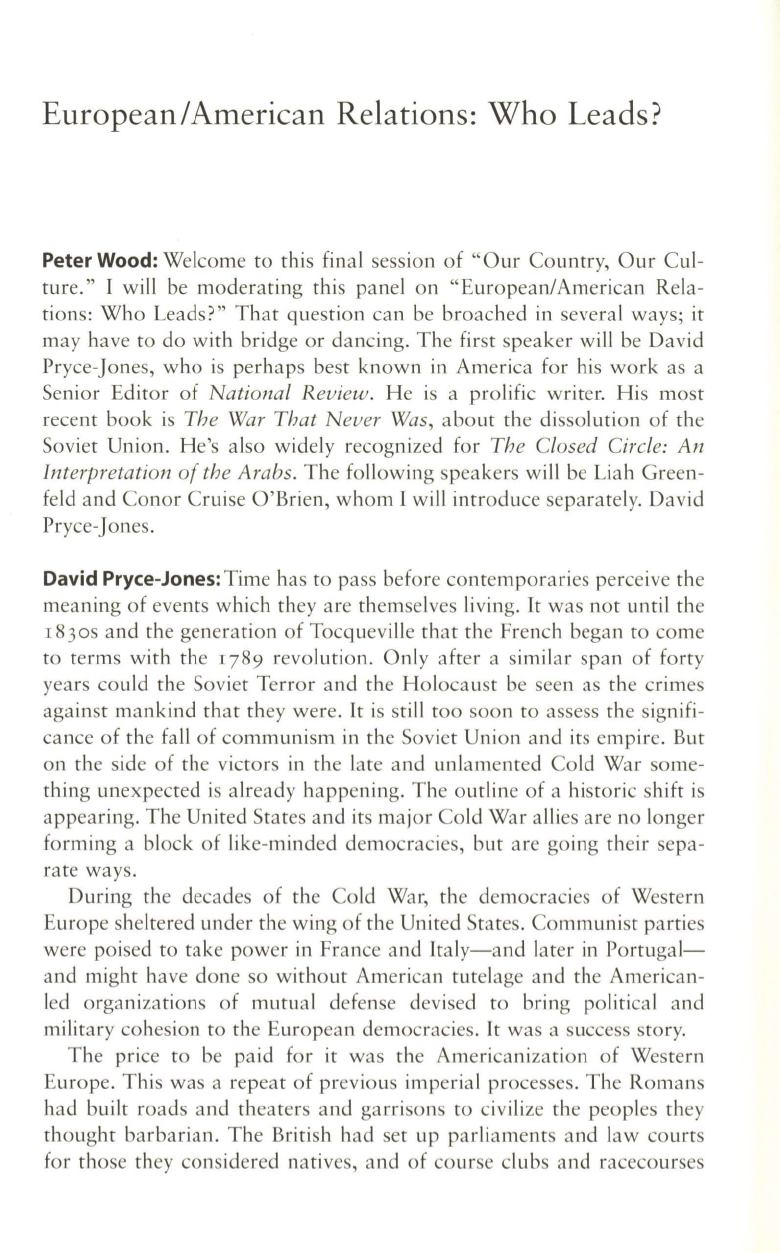
European/American Relations: Who Leads?
Peter Wood:
Welcome to this final session of "Our Country, Our Cul–
ture." I will be moderating this panel on "European/American Rela–
tions: Who Leads?" That question can be broached in several ways; it
may have to do with bridge or dancing. The first speaker will be David
Pryce-Jones, who is perhaps best known in America for his work as a
Senior Editor of
National Review.
He is a prolific writer. His most
recent book is
The War That Never Was,
about the dissolution of the
Soviet Union. He's also widely recognized for
The Closed Circle: An
Interpretation of the Arabs.
The following speakers will be Liah Green–
feld and Conor Cruise O'Brien, whom I will introduce separately. David
Pryce-Jones.
David
Pryce-Jones:
Time has to pass before contemporaries perceive the
meaning of events which they are themselves living.
It
was not until the
1830S
and the generation of Tocqueville that the French began to come
to terms with the 1789 revolution. Only after a similar span of forty
years could the Soviet Terror and the Holocaust be seen as the crimes
against mankind that they were. It is still too soon to assess the signifi–
cance of the fall of communism in the Soviet Union and its empire. But
on the side of the victors in the late and unlamented Cold War some–
thing unexpected is already happening. The outline of a historic shift is
appearing. The United States and its major Cold War allies are no longer
forming a block of like-m inded democracies, but are going their sepa–
rate ways.
During the decades of the Cold War, the democracies of Western
Europe sheltered under the wing of the United States. Communist parties
were poised to take power in France and Italy-and later in Portugal–
and might have done so without American tutelage and the American–
led organizations of mutual defense devised to bring political and
military cohesion to the European democracies. It was a success story.
The price to be paid for it was the Americanization of Western
Europe. This was a repeat of previous imperial processes. The Romans
had built roads and theaters and garrisons to civilize the peoples they
thought barbarian. The British had set up parliaments and law courts
for those they considered natives, and of course clubs and racecourses


